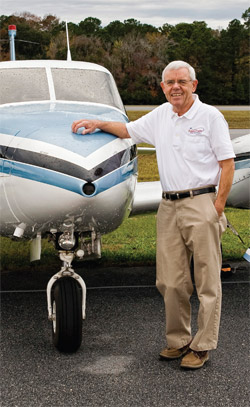Type of missions we fly
We help everyone… from the unborn (up to five months gestation) to the elderly. Every request is either flown or referred.
Medical
- Needs of Patients that are traveling to and from medical appointments might include:
- Medical Evaluation
- Participation in a clinical trial
- Treatment
- Follow-Up Care
Compassion
- Wounded veterans
- Non-medical passengers traveling for compelling reasons such as:
- Attend a function that would otherwise be impossible (medical conference for instance)
Transplant
These missions are coordinated in advance and are often flown in the middle of the night.
- Passengers receiving organs
- We do not fly organs
- Non-urgent transplant missions fall under Medical Missions
Domestic Abuse
- Relocating families from one safe haven shelter to another
- Referrals must be coordinated with a Shelter Director or Case Worker
Special Camps
- Waivers are signed in advance by parents/guardians. Children can fly unaccompanied, but pilots must have an additional adult on board at all times.
- Camps for kids with special needs
- Camps for kids with parents or siblings with special needs
Adoption/Foster Care
- Agency personnel or potential parents must accompany children.
- Travel for monitored visitation
- Travel for placement
Homeland Security
- Angel Flight Southeast is a First Responder. Missions support natural or manmade disasters.
- Flying survivors out of danger
- Flying survivors to/from shelters
- Flying relief personnel into disaster areas
- Flying supplies into disaster areas (these can be flown by pilots with less than 250 PIC and/or those who only fly experimental aircraft)
In all cases, pilots are required to obtain signed waivers from passengers, file a mission report after each flight and report personal expenses for purposes of tax write-off.
Missions we don’t fly
We want to help, but we must be respectful of our pilot’s time and cost to fly. Therefore, the mission must be “compelling” for the pilot to want to donate their time, talent, fuel and aircraft.
Sorry, we can’t help with these:
- If you can afford a commercial ticket (unless there is a medical reason for not flying commercially)
- Flights to visit a sick friend or relative
- Relocations – transporting patients/passengers to their home or to family members, even when ill
- Funeral flights
- Hospice flights
- Flights over 1,000 nautical miles or under 100 (except for over water, or the driving distance is 150 miles or more)
- Flights when local treatment is available
- Not enough lead-time for a new patient (we need approximately two weeks lead time)
- Abuse victims without a shelter sponsor (you must go to a shelter first)
- Over 500 lbs total weight
- We cannot take stretcher or wheelchairs (due to our aircraft being small 4-6 seaters)
- Passengers who can’t step up 18 inches on their own and sit upright
- Patients whose doctor cannot provide us a medical release
- Passengers who get airsick or fear of heights
- Patients who needs excessive medical equipment
- Patients who need medical staff onboard
- Passengers who do not have a backup plan. A lot can go wrong. Weather, sick pilots, broken aircraft. We may not be able to take your flight that day. It is imperative that you have a backup plan in case something goes wrong.